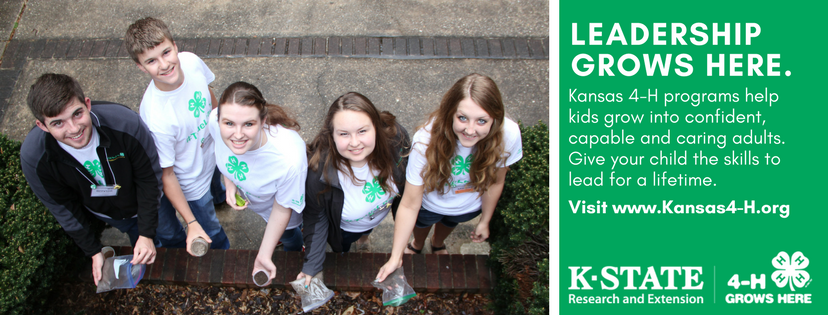“Chasing Clovers”
By Patsy L. Maddy - Twin Creeks Extension District, 4-H Youth Development Agent

Reset!!! Stop making excuses and start to grow! Dr. Tim Elmore, founder and CEO of Growing Leaders, shares his thoughts about studies conducted by scientists and psychologists that reveal so much of our growth and ability is in our control. This information is the opposite of our natural and sometimes convenient habits to blame genes for our shortcomings.
While Dr. Elmore was visiting with a college freshman, she stated that she just wasn’t “a math person”. She also proceeded to say things like:
“I don’t have a creative bone in my body.”
“I’m such a klutz.”
“I have no artistic ability.”
“I’m not good at remembering names.”
Do any of these statements sound familiar or something that we have heard from youth? It is easy to simply excuse our behavior when, instead, we need to help our youth grow. We can either make resolutions to fix mistakes or make excuses for why we can’t really change due to your genes.
Stanford research psychologist, Carol Dweck, reminds us that people tend to develop either a “fixed mindset” or a “growth mindset”. The college freshman that Dr. Elmore visited had a fixed mindset – “I’m just not a math person.” It’s who I am. I can’t change. A “growth mindset” believes our brain works like a muscle that can grow with proper exercise. Carol Dweck noted that her favorite word is “yet”. According to Dweck, it is completely fair to say: “I’m just not good at math…yet.” I am growing. Dweck and Elmore agree that we must help students make this shift.
We have DNA from our mom and dad and we observe their behavior for years. The good news—students can break out of almost any mold they choose by taking certain steps. Suggestions to help students grow instead of excusing their behavior include the following:
- Adjust your mental ruts. What do we find ourself thinking and saying to ourself? Most of us are caught saying negative things and fail to use the work “yet”. “I’m not good at remembering names – yet!” Our routines form our ruts. Try new routines that force us to think and act differently. Neural pathways can change with hard work.
- Repeat what you desire. One example would be wanting to become a better writer. Choose to write daily whether it is for a few minutes or longer. Set a “writing day” each week. Compare past writings to current writings. Improvement will usually be evident.
- Learn enough to become interested. Dr. Elmore states that our brains are capable of far more than we assume. Many times, our problem is not IQ, but interest. We just aren’t interested in specific topics. Find a reason to get curious. We can become better at learning names when we choose to become interested in those people.
- Choose to do the work. “Learned helplessness” and “learned industriousness” are terms used by behavioral scientists. People give up on a task more quickly when they see no change and believe it makes no difference. On the other hand, we keep trying when we see the slightest improvement. We must be willing to continue working on a particular task until we see progress which will trigger endorphins that motivate us.
Confucius said: “He who thinks he can, and he who thinks he can’t, are both usually right.”
Dr. Elmore shares these statements titled “Habit”. I am your constant companion. I am your greatest helper or heaviest burden. I will push you onward or drag you down to failure. I am completely at your command. Half of the things you do you might as well turn over to me and I will do them, quickly and correctly. I am easily managed, but you must be firm with me. Show me exactly how you want something done and after a few lessons, I will do it automatically.
For those who have the ability to have an impact on our youth, consider helping those with a “fixed mindset” change to a “growth mindset” to provide an attitude of success. Remind them to add the work “yet” to the end of their “I can’t…” statements.
Contact 4-H Youth Development Agent, Patsy L. Maddy, at your local Twin Creeks Extension District office in Decatur, Graham, Norton or Sheridan counties to take advantage of the benefits of participating as a 4-H member. (pmaddy@ksu.edu, 785-877-5755)
Information in this article has been adapted from Dr. Tim Elmore, founder and CEO of Growing Leaders, a non-profit organization that partner with schools, colleges, athletic departments and organizations to develop today’s emerging generation of leaders.

